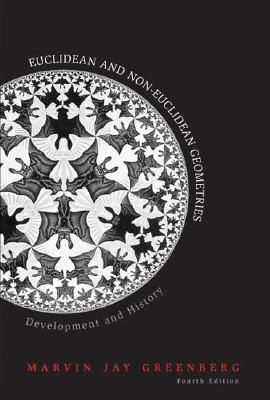
Greenberg, Marvin J.
product information
description
6
This is the definitive presentation of the history, development and philosophical significance of non-Euclidean geometry as well as of the rigorous foundations for it and for elementary Euclidean geometry, essentially according to Hilbert. Appropriate for liberal arts students, prospective high school teachers, math. majors, and even bright high school students. The first eight chapters are mostly accessible to any educated reader; the last two chapters and the two appendices contain more advanced material, such as the classification of motions, hyperbolic trigonometry, hyperbolic constructions, classification of Hilbert planes and an introduction to Riemannian geometry.
member goods
No member items were found under this heading.
Return Policy
All sales are final
Shipping
No special shipping considerations available.
Shipping fees determined at checkout.







